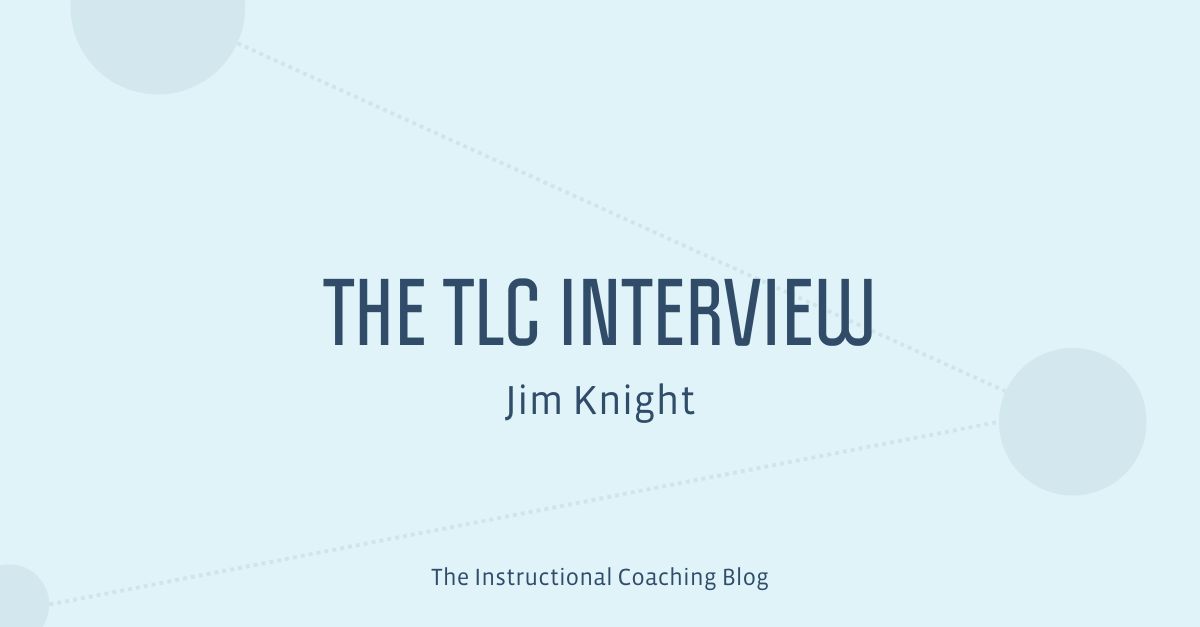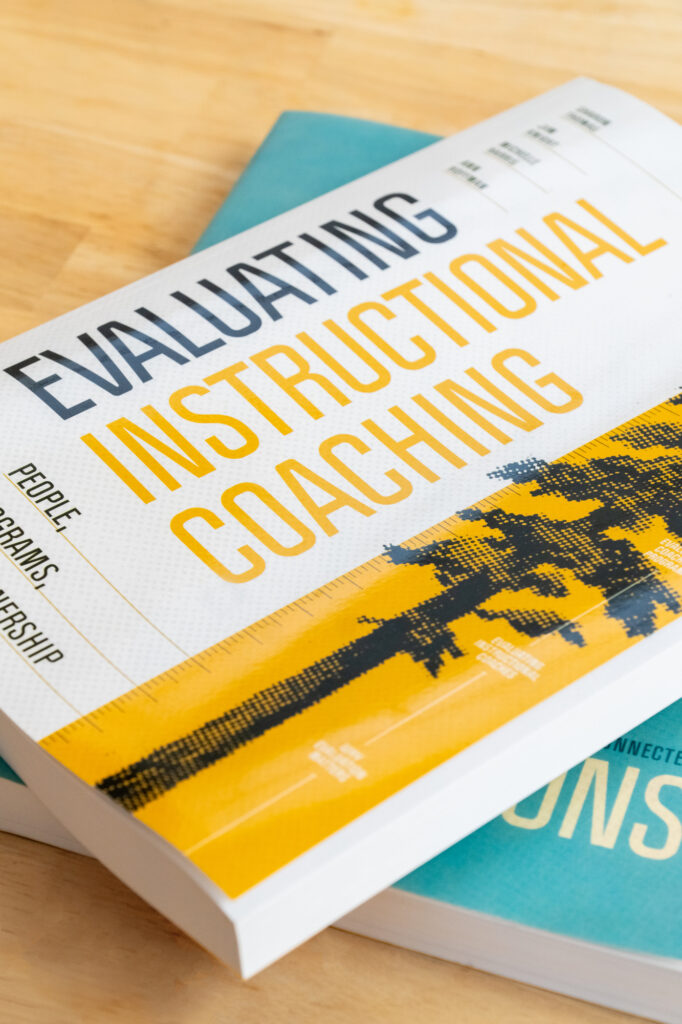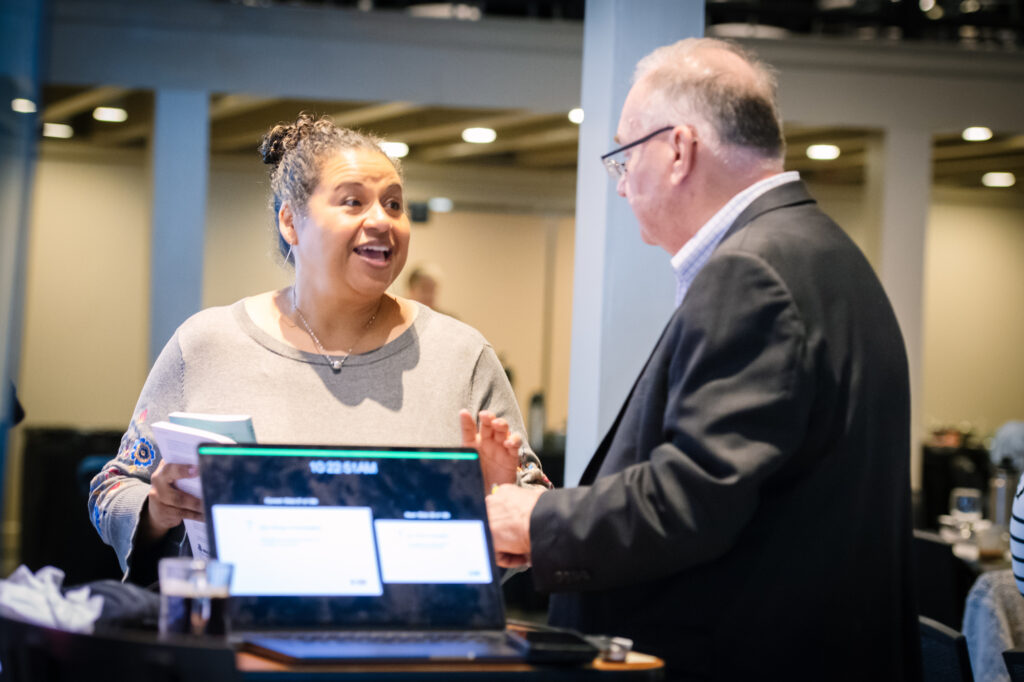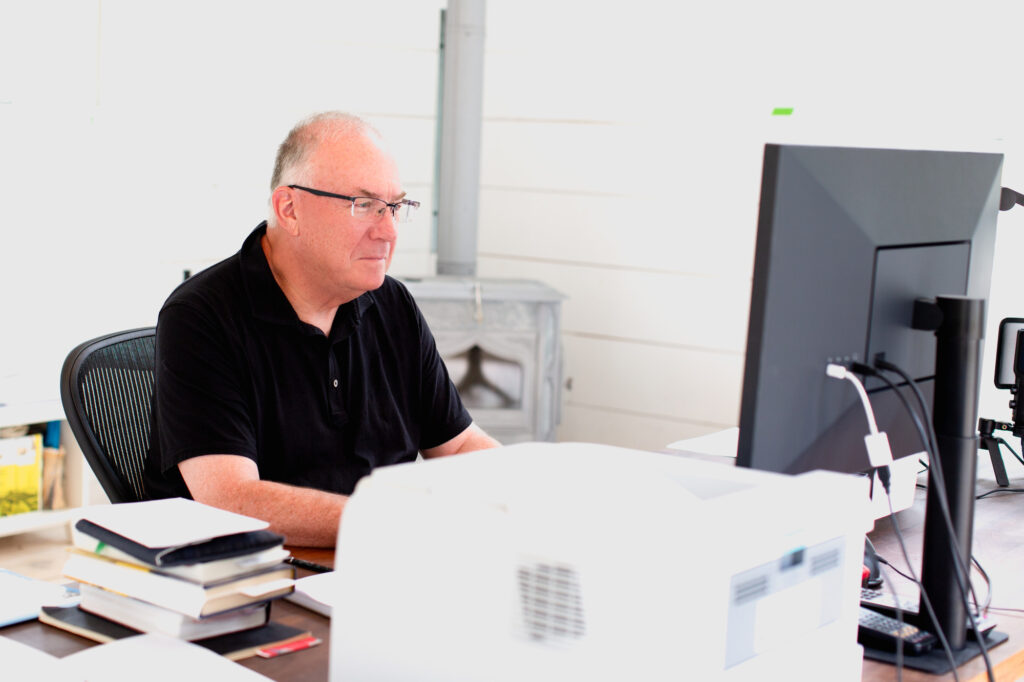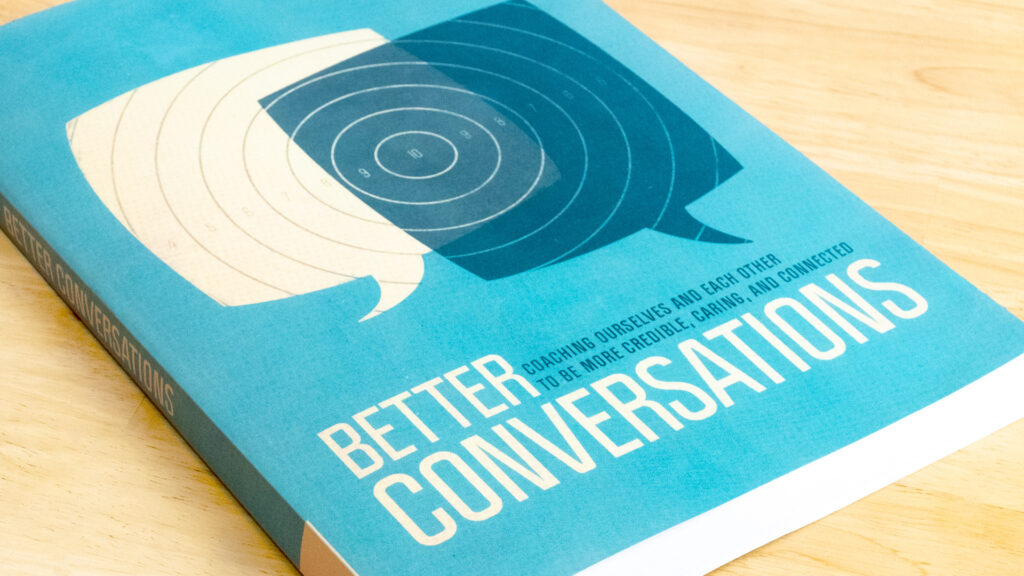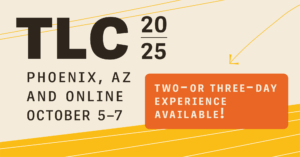In the weeks leading up to our annual conference, Teaching, Learning, and Coaching, I’ll be posting interviews with the experts who will be presenting there. The interviews will surface many different ways of looking at coaching, and like the conference itself, I hope the interviews inspire, educate and provoke new thinking. I don’t agree with everything I hear in the interviews, but I am grateful for others’ thinking. We move forward by challenging our beliefs, and I hope what you read in the interviews challenges you as it did me. You can keep up with the interviews by subscribing to the blog.To kick off this series, I started by interviewing myself. Really.
Here’s what I said to me:
How did you come to write about coaching? I actually didn’t start out studying coaching, at least we didn’t describe it that way. At first I was focused on figuring out a good way to get better at sharing teaching practices with teachers. What happened was I used teaching practices that helped me be a lot more effective with students (the learning strategies curriculum developed at The University of Kansas Center for Research on Learning), and after seeing how effective the learning strategies were, I wanted to figure out how to get tools like that into the hands of teachers. I could see the workshops I was leading weren’t working, and I wanted to find some other way that would lead to implementation and better learning for kids.At first we described the change leaders we were studying as learning consultants. Then we felt a better term would be instructional collaborator, which is a name I still like quite a lot. Then we moved to using instructional coach around 2004—mostly because whenever we presented what we were doing people told us we were describing coaches. In 2007 I released the book Instructional Coaching: A Partnership Approach for Improving Instruction. When it came out, I didn’t know if anyone would read it at all. Since the book was released, there has been more interest in instructional coaching every year.
Tell me about your publications on coaching. What I’ve tried to do over the past decade is create a library of tools that anyone (and especially instructional coaches) can use to radically improve teaching in schools. In 2007 Instructional Coaching was released, and that book laid out some key factors for coaching programs. In 2011 Unmistakable Impact was released, and it described how the Partnership Principles can be used to shape effective coaching, workshops, schoolwide change, teams, and other forms of professional development in schools. Then in 2013 I put out High-impact Instruction, which described the high-yield teaching strategies we came to use with teachers during ten years of studying instructional coaching.In 2014 Focus on Teaching was released, a book about how to use video as a power tool for professional development and learning. Then in 2015, Better Conversations was published, a book about how to build the kind of relationships we need for learning and in fact for a fulfilling life. In August, we will be releasing The Impact Cycle, which describes the coaching cycle we use when we work with teachers to bring about change. All of these books are published by Corwin.That library is a lot to read, but I think an effective instructional coach does need to understand (a) what instructional coaching is, (b) a set of teaching strategies they can share with teachers to help them hit their goals, (c) how to use video within coaching, (d) how to communicate effectively, and (e) how to partner with teachers to move through a coaching cycle, setting and hitting goals. These books describe those components of a program. I wrote the books to provide a solid foundation for anyone who wants to have an unmistakable, positive impact on teachers’ and children’s lives.
What are some core ideas in your approach? First off, we believe the measure of success for coaching is improvement in student achievement and wellbeing. This is not just a nice thought. Student-focussed goals stand at the heart of our approach to coaching.Second, we see coaching as a partnership activity with teachers, which is to say we see teachers and coaches as having equal status. We believe teachers’ voices should shape coaching, and that teachers must make a lot of the choices about their learning. If teachers don’t have a voice and choice, we’re not sure learning will happen.Third, we partner with teachers to make improvements by helping them get a clear picture of reality, set goals, and identify teaching strategies that will help them hit their goals. Consequently, instructional coaches need to know a great deal about effective teaching practices.Finally, we see coaching as dialogical, so instructional coaches share ideas, but they share them in a way that encourages other opinions. We don’t give advice or tell teachers what to do, but we do share ideas provisionally and precisely and let teachers decide how and if they want to use what we share. You can read more about dialogical coaching and how it is different from other forms of coaching here: Three approaches to coaching
What have been your key learnings over the past few years? Since I wrote Instructional Coaching in 2006, we have learned a lot. We now know that goals are really important for focusing coaching and establishing boundaries. After reviewing the literature on goal setting, and field testing our model, we now suggest coaches partner with teachers to establish PEERS goals, goals that are powerful, easy, emotionally compelling, reachable (they can be measured and teachers have strategies they can use to hit the goals), and student-focused. You can read more about PEERS goals here: PEERS GoalsWe have also learned about the power of video for coaching and professional learning. We’ve known for a long time how video can accelerate learning, but now smart phones make that learning easy. When it comes to professional development, video is the most significant disruptive technology since the Internet, and most coaches who use video now can’t imagine coaching that doesn’t involve it.We also continue to learn about how to use checklists and precise explanations of teaching strategies, the power of different kinds of questions and effective questioning techniques, and the importance of an instructional playbook that summarizes the teaching strategies instructional coaches share with teachers. All of these ideas are discussed in detail in my new book The Impact Cycle.
What is a metaphor for what coaches do? When I was much younger, I used to spend a lot of time climbing in the Canadian Rockies around Jasper, Alberta. When I went climbing, I always went with a climbing partner, and when we climbed up an ice-covered mountain or a rock cliff, we were roped together, so that if one if us fell, the other would the person falling. Climbing was something we did together, and when we reached the top, we saw views we’d never seen before, and we felt a deep sense of accomplishment—climbing the mountain was something we’d done together, and we’d always know we had that experience. I think coaching is like that in a lot of ways.
Since our conference theme is “It’s all about the kids” please tell me a bit about the impact your work has on children. The basic idea at the heart of instructional coaching is that better teaching leads to better learning. When most of us went to university, our first question about a particular course likely was “Who is teaching the class and what is he or she like?” We knew the professor could make or break a class. It’s no different for children. Their learning is dramatically affected by how they are taught, and our students all need us to be getting better at what we do. I need to get better at research, writing, and sharing ideas with educators. Coaches need to keep getting better at coaching teachers. Teachers need to keep getting better at teaching so their students have a greater chance at a better life.This is what our kids deserve, but getting better also leads to a more fulfilling life for all of us.
Please give us a quick summary of what you will be presenting the TLC. This year and all the years to come I plan to present what we have learned about coaching. During my Keynote, I’ll tell the story, from start to finish, of one teacher I coached with lots of video of how we worked together.TLC is a chance for me to share ideas, but I especially see it as a great opportunity for me to learn. I hope you get a chance to come to the conference to learn along with us, but if you can’t go, just subscribe to this blog. Each week I’ll be posting an interview of one of the coaching experts coming to TLC.
Next week I’ll post my interview with my friend, Joellen Killion, one of the leaders in the field of coaching and professional development.You can learn more about who is presenting at TLC here: The Teaching, Learning, Coaching Conference
